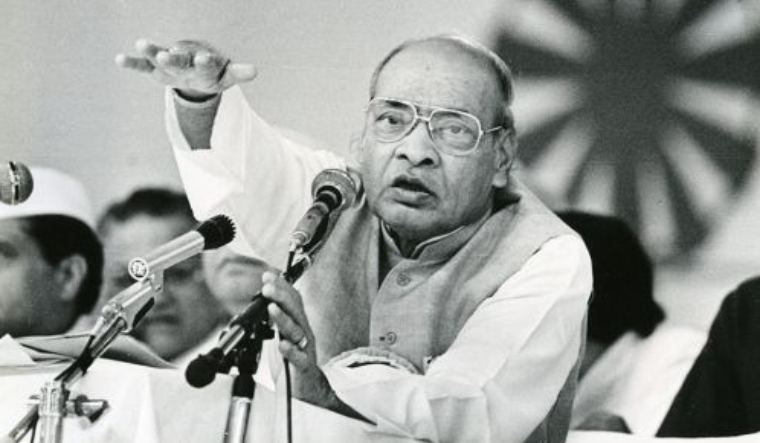In 1991, weeks after P.V. Narasimha Rao took oath as the prime minister of India in New Delhi, an astonishing image emerged from his native village in then Andhra Pradesh (present-day Telangana). Vangara, his paternal village, is situated in Karimnagar district in Telangana. At the village crossroads, an Indian flag was replaced by a red flag by the members of People’s War, a banned left wing extremist group. The naxalites had dared to “capture” the PM’s village. The fact was that they were neither protesting the prime ministership of Narasimha Rao nor were they against him as a landlord. The left extremists were routinely displaying shows of strength in villages across north Telangana as they were influential at that point of time.
Though Rao was born in a family of landlords holding hundreds of acres, he was never, as an individual, the target of naxalites. The reason was that the PM had by then given away more than 500 acres of the land under the family’s control to the government. In 1971, as a chief minister, Rao knew well that he would be the biggest loser if the land reforms, his brainchild, were to be implemented in the state. In the next few years, he let go off huge tracts of agricultural land that he had inherited. Ironically, it was the landed gentry of Andhra, Rayalaseema and Telangana regions who were responsible for his ouster from CM’s chair.
A senior political leader from a feudal background in Andhra was popular for what hesaid at that time, “It is better to join naxalites than be in Congress.”
Narasimha Rao was a harbinger of change, whether it was governance, politics or his personal life. He would constantly come up with new ideas and also implement them. Though he came across as submissive and mild during usual times, he was independent and well in control while ruling. In 1971, Rao was supported by different groups within the Congress party for claim to the chief minister’s post assuming he will be their stooge as he did not have any camps or powerful community backing him. Once he was settled in the top post, he tried giving wings to his ideas. The most significant was the introduction of the AP Land Reforms Bill, much to the chagrin of the powerful feudal leaders within the party. Soon, there were threats to split the party and even the state, as the demand of Jai Andhra movement for a separate state comprising Andhra region intensified. According to some political analysts, the movement was propped up by certain sections of the Congress to end the Rao’s rule. The Centre intervened and imposed President’s rule, ending the two-year tenure of Rao. The AP Land reforms Act was implemented but in diluted form in later years and Rao’s wish to ease excessive lands from individuals and redistribute it among the poor was only realised to a certain extent.
“By then, the rich peasants and feudal lords had found a way out of the situation. The lands were transferred to servants or between couples who faked divorce. Children who were minors were shown to be much older and the properties were transferred on their name,” shared a senior journalist who was close to Narasimha Rao.
Narasimha Rao may not have marketed his initiatives well but what is not known to many is that he was the first to introduce the concept of social justice in politics in the united Andhra Pradesh. In the state elections where he was in charge, he ensured that 70 per cent of the tickets were given to Scheduled Castes, Scheduled Tribes and Backward Classes. Many of those who won were also part of his state cabinet which was unheard of in those days as it was mostly the upper castes who called the shots.
Much before he became the chief minister, Narasimha Rao held ministerial portfolios that aligned with his interests and passion. He was the minister for Law and Information between 1962-64. While he was a qualified lawyer, he was also a journalist in the real sense. In 1947, he along with his cousin Pamulaparthy Sadashiva Rao founded Kakatiya Patrika, a magazine published out of Warangal town. He contributed a number of articles under the pen name ‘Jaya-Vijaya’. He could not let go off the writer in him even in the later years. Under the pen name ‘Congressman’, he allegedly wrote controversial articles opposing the Emergency imposed by former PM Indira Gandhi for Mainstream, a news outlet.
In 1965, as a minister, he introduced the open jail system for the first time in the state. The prisoners were given a chance to spend more time in the midst of nature and reform themselves. As education minister, between 1968 and 1971, he started government residential schools in the state and helped poor children get quality food and accommodation along with education.
According to those who knew his mind or interacted with him, Narasimha Rao had many radical and innovative ideas for the state, but with his role cut short, the country gained more from him.



